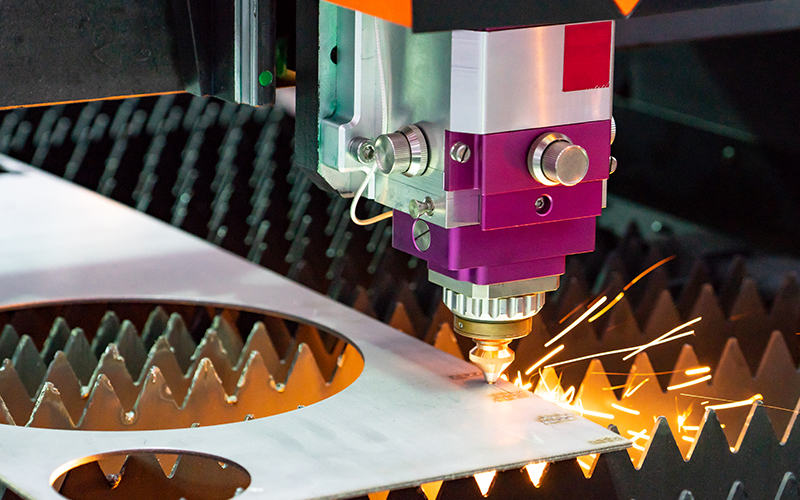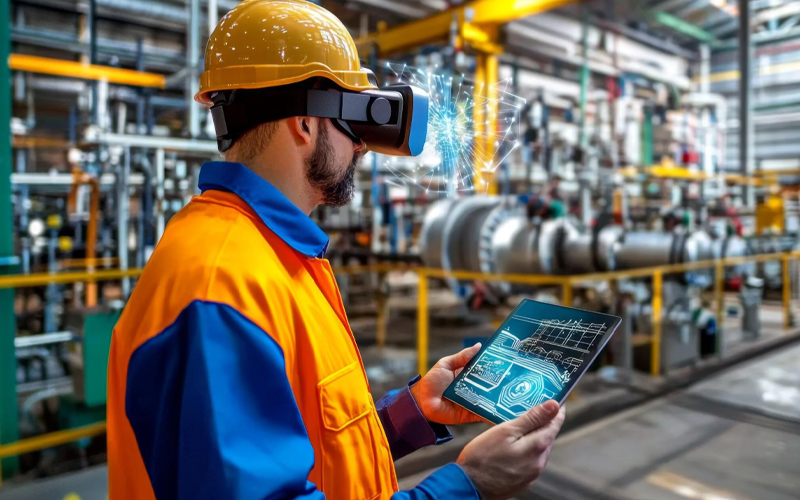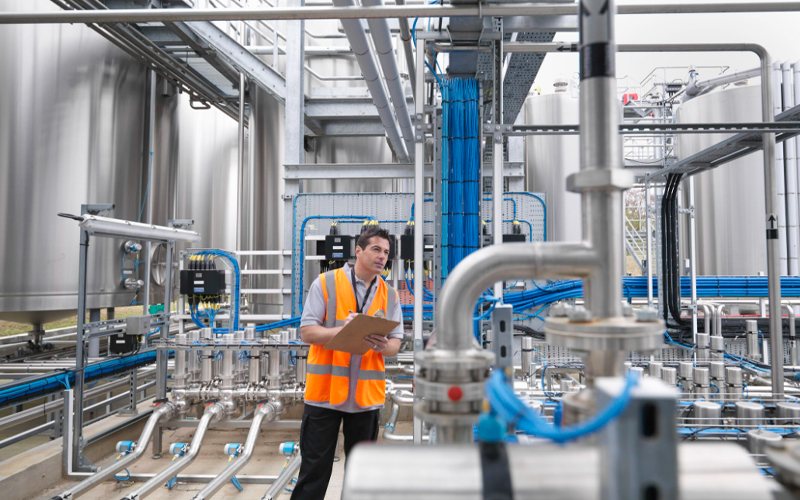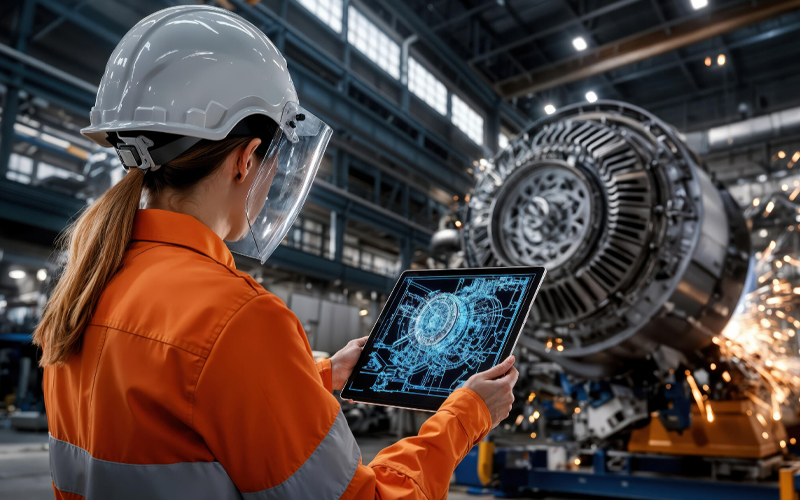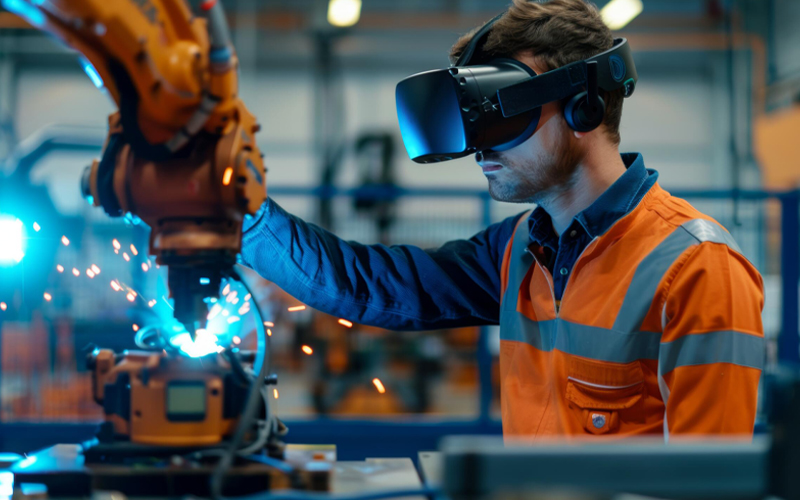In an era where environmental concerns are at the forefront of global discussions, the manufacturing industry has recognised the need to embrace sustainable practices. Green manufacturing, or sustainable manufacturing, has emerged as a key player in shaping a more environmentally friendly and socially responsible future. It is an innovative approach that blends technology with green strategies to create a more sustainable future.
Understanding green manufacturing
Green manufacturing refers to the adoption of eco-friendly and sustainable practices throughout the entire manufacturing process. At its core, it aims to strike a balance between environmental responsibility and economic growth. From raw material extraction to production, distribution and disposal, green manufacturing tries to minimise any negative impact on the environment. Sustainable manufacturing can be described as a growing space where economic growth harmonises with environmental stewardship.
Green manufacturing practices
A fact that cannot be ignored is that businesses can continue functioning only if they remain profitable, and all corporate sustainability measures are motivated by certain positive drivers. The key drivers of green manufacturing include resource efficiency, waste reduction and the use of renewable energy sources, all of which are cost-saving measures in the long run.
- Energy efficiency
- Waste reduction and recycling
- Lean manufacturing
- Sustainable product design
- Sustainable supply chain
- Green technology
One of the fundamental aspects of green manufacturing is the optimisation of energy use. Manufacturers are increasingly turning to renewable energy sources to reduce their carbon footprint. Industry reports suggest that by 2030, renewable energy will constitute 27 per cent of the total energy consumption worldwide. Energy-efficient technologies and processes, such as advanced machinery and optimised production schedules, contribute to lowering overall energy consumption.
Green manufacturing focuses on minimising waste generation and promoting recycling. This involves designing products with recyclable materials, implementing efficient recycling and treatment programs within the manufacturing facility and ensuring responsible disposal methods. By reusing materials and reducing waste, manufacturers contribute significantly to environmental conservation.
Adopting lean manufacturing principles is another key practice in green manufacturing. This approach focuses on streamlining production processes to eliminate waste and increase efficiency. By minimising excess inventory, improving product designs and reducing unnecessary steps in the manufacturing chain, companies can achieve both cost savings and environmental benefits.
Experienced manufacturers understand that sustainability cannot be injected into existing products or processes. Smart manufacturing software enables R&D teams and designers to work on a single platform and develop sustainable designs. The teams analyse data, simulate situations, access customer feedback and integrate the necessary elements into products and processes. For example: using less packaging, minimising complexities in design and production, and using recyclable parts, among others.
Green manufacturing extends beyond the factory walls to encompass the entire supply chain. Companies are increasingly seeking sustainable sourcing of raw materials, choosing suppliers with environmentally friendly practices. This holistic approach ensures that the entire production process aligns with the principles of sustainability.
Technology makes it possible for manufacturers to monitor and optimise processes in real time. Advanced sensors, artificial intelligence and data analytics are some of the tools that make it possible. Being able to make informed decisions allows businesses to reduce the consumption of energy and all other resources. Life cycles of machines and equipment are prolonged and less waste is produced. In other words, embracing Industry 4.0 ensures manufacturers use resources consciously, cause negligible damage and allow processes to be leaner.
Some of the popular technologies that boost the green economy are cloud-connected industrial IoT networks, AI and machine learning, predictive analytics, blockchain sensors, supply chain control tower, ERP and automation.
Benefits of green manufacturing
- Environmental conservation
- Cost savings
- Market competitiveness
- Regulatory compliance
Perhaps the most significant benefit of green manufacturing is its positive impact on the environment. Reduced energy consumption, lowered emissions and minimised waste contribute to preserving natural resources and ecosystems. This not only mitigates the environmental impact of manufacturing but also helps address climate change concerns. Modern businesses are also utilising the skills of conservationists to build a culture of sustainability.
Contrary to the misconception that sustainable practices are costly, green manufacturing often leads to long-term cost savings. Energy-efficient technologies reduce utility bills, waste reduction strategies minimise disposal costs and streamlined processes enhance overall operational efficiency.
As consumers become more environmentally conscious, companies that embrace green manufacturing gain a competitive edge. Eco-friendly products and sustainable practices appeal to a growing market segment, enhancing brand reputation and attracting environmentally conscious consumers and job seekers.
Governments worldwide are implementing stricter environmental regulations. Green manufacturing not only positions companies to comply with these regulations but also demonstrates a commitment to corporate social responsibility. This proactive approach can help manufacturers avoid legal issues and potential fines associated with environmental non-compliance.
Challenges of green manufacturing
However, implementing green manufacturing practices is not always all smooth sailing. There are a few challenges too.
- The initial investments are quite high and can hold back businesses from initiating the process. The cost of new equipment, infrastructure and training can be quite a deterrent.
- Changing from traditional to green manufacturing methods requires businesses to once again evaluate every production stage and that can be a daunting task.
- Compliance with environmental regulations is not easy for all businesses. It adds complexities and operational costs that can be difficult to meet.
- Ensuring that the whole supply chain is eco-friendly is not easy either. Businesses must ensure that their suppliers, transporters and other involved parties all share a similar commitment to sustainability.
- Businesses often face challenges when they try to convince customers that green products are worth the premium price quoted.
Green manufacturing is no longer just a buzzword
However, all said and done, sustainable manufacturing is no longer just a cosmetic practice, it has become a matter of survival for both the planet and industry.
To implement sustainable practices, businesses sometimes look for outsourcing partners that can ensure they are following eco-friendly practices in their manufacturing units. As the world grapples with environmental challenges, the adoption of sustainable practices in manufacturing has become imperative.
How can Infosys BPM help?
If your organisation is looking for a solution that goes beyond standardised operating models and benchmarks, Infosys BPM is ready with the mandate to transform your business using our digital services. Infosys BPM provides end-to-end business manufacturing outsourcing solutions focused towards the manufacturing industry.



